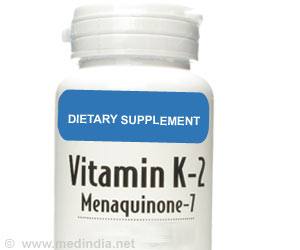A single vitamin K shot protects an infant from vitamin K-deficient bleeding until they develop enough to begin producing vitamin K.

A vitamin K shot is typically given within minutes to hours of birth to ensure there is enough vitamin K to prevent bleeding. Vitamin K is not sufficiently passed on by mothers to their newborns, and very little vitamin K is present in breast milk. The single vitamin K shot protects an infant until they develop enough to begin producing vitamin K and consuming vitamin K-rich foods on their own.
“The risk of getting a vitamin K shot is very minimal, but the risk of not getting it is very serious. Babies who don’t get vitamin K can actually have silent bleeding internally, commonly into their brains. This could result in seizures, coma or even death. Parents should know that vitamin K-deficient bleeding is preventable, ” said Dr. Kassis, an emergency medicine physician at Nationwide Children’s.
Symptoms of VKDB are difficult for a parent or even a health professional to recognize in a newborn, and can include fussiness, blood in the stool and even seizures, all of which will increase as the bleeding increases. VKDB is preventable, and a single injection of vitamin K at birth restores vitamin K levels in the blood to normal range within an about an hour.
“When parents request that no shots be given to their child at birth because they are opposed to vaccines, the vitamin K shot has been accidentally included in that category,” said Dr. Kassis. “The vitamin K shot is an injection of a vitamin. It has no immune properties. It is purely to replace a critically important deficient vitamin.”
It is important that emergency medicine physicians are vigilant when it comes to the vague symptoms of early stage VKDB. “I recommend that all children are vaccinated and receive all the recommended newborn shots and screens. Expectant parents should speak with their obstetrician or at a prenatal appointment with their pediatrician about any questions or concerns about the vitamin K shot or any other immunizations,” said Dr. Kassis.
Advertisement














